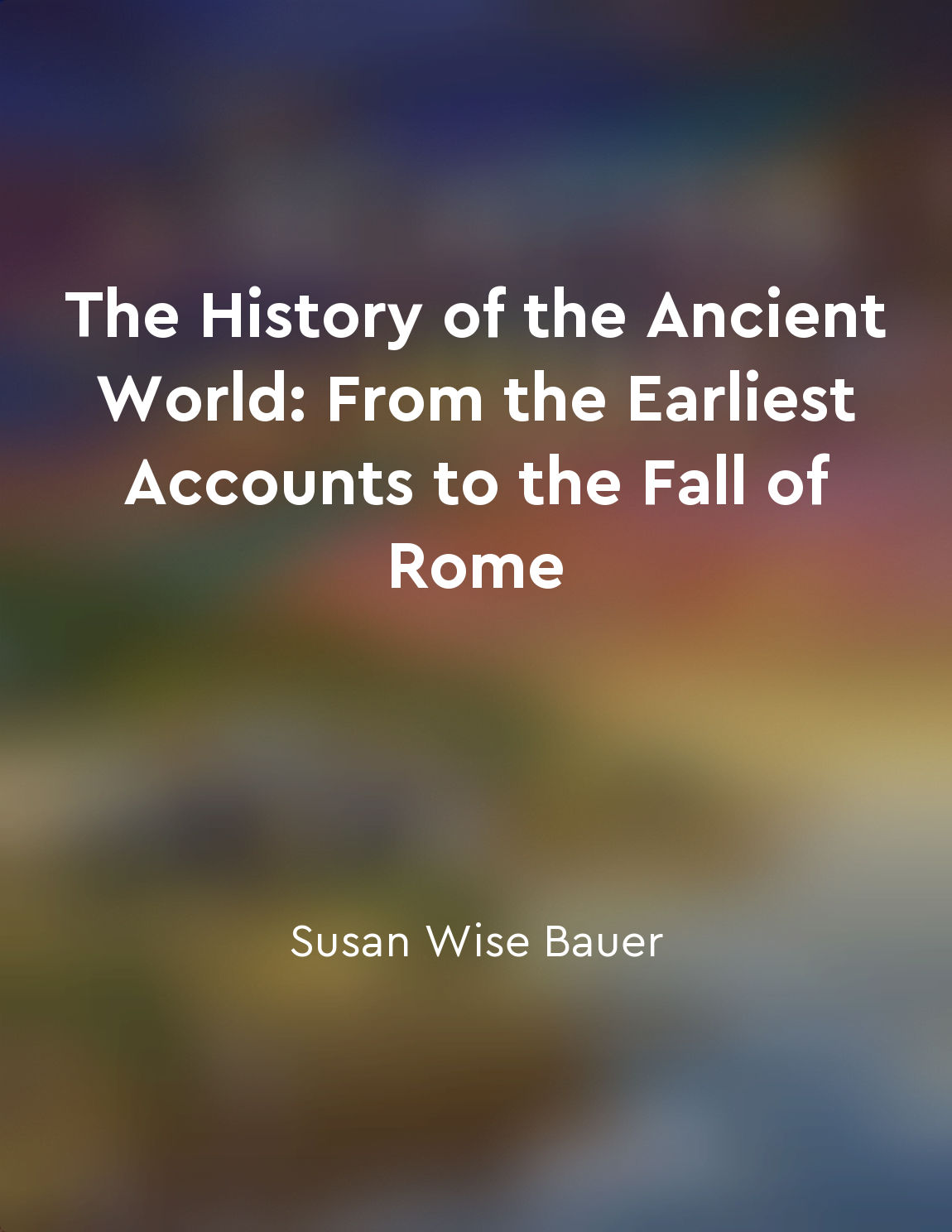Environmental challenges led to social upheaval from "summary" of The Fate of Rome by Kyle Harper
The Roman Empire faced a series of environmental challenges that put immense pressure on its social fabric. The changing climate patterns, outbreaks of disease, and depletion of natural resources all contributed to the destabilization of Roman society. One of the key environmental challenges was the Little Ice Age, a period of cooling that brought about droughts, famines, and food shortages across the empire. These extreme weather events disrupted agriculture, leading to widespread hunger and malnutrition. The scarcity of food not only affected the physical health of the population but also heightened social tensions as people struggled to survive. Furthermore, the spread of infectious diseases such as the Antonine Plague and the Justinianic Plague had devastating effects on Roman society. These pandemics caused high mortality rates, weakened the labor force, and disrupted trade and commerce. The fear and uncertainty surrounding these diseases fueled social unrest and undermined the stability of the empire. In addition, the overexploitation of natural resources, such as deforestation and soil degradation, had long-term consequences for Roman society. The depletion of forests for timber and fuel led to soil erosion, reduced agricultural productivity, and increased vulnerability to natural disasters. The degradation of the environment not only affected the economy but also created social inequalities and conflicts over access to resources.- The spread of diseases, and the environmental degradation all contributed to the breakdown of social order, political instability, and ultimately the decline of the empire. The interconnectedness of these environmental and social factors highlights the complex relationship between human societies and the natural world.
Similar Posts
The decline of Roman infrastructure hindered economic growth
The once mighty Roman Empire, which had flourished for centuries, began to see a gradual decline in its infrastructure. The ela...
Biological warfare and impact on populations
Biological warfare, a sinister form of conflict where diseases are weaponized to devastate enemy populations, had a profound im...

Delve into the intricacies of ancient warfare and conquest
The history of ancient warfare and conquest is a complex tapestry woven with threads of strategy, tactics, and sheer force. To ...
The lack of political unity weakened Rome's ability to respond to external threats
The disunited councils of Rome were separated by factions and discord, each pursuing its own interests rather than the common g...
The loss of territories in Africa and the Middle East weakened Rome's resources
The Roman Empire, once a vast and powerful entity, began to experience a decline in its fortunes as it lost control over territ...

